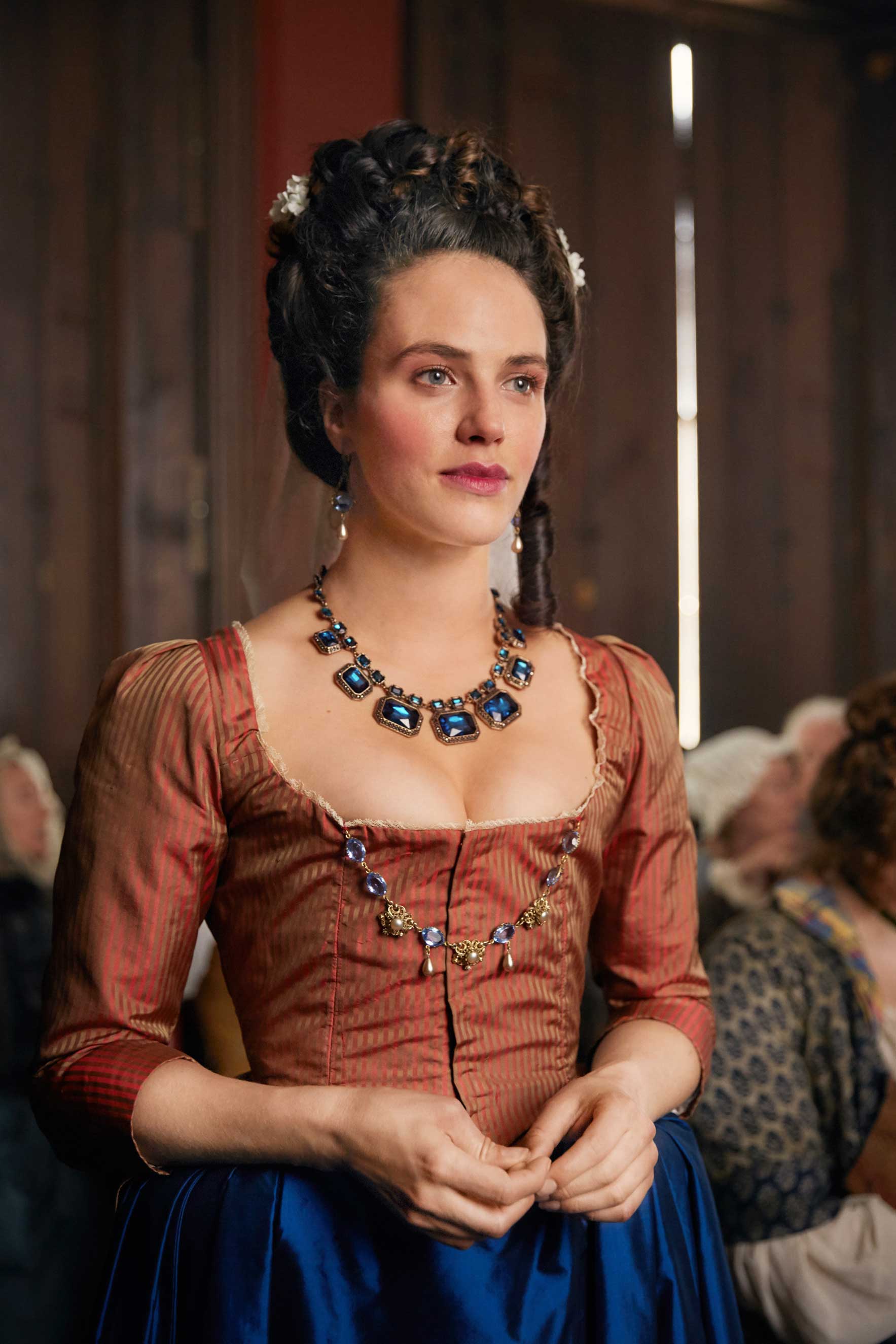
In 1763 London, the opening sequence of Hulu’s new series Harlots informs us, 1 in 5 women is a sex worker. If anything, this figure seems low once the show plunges viewers into a world so relentlessly focused on the flesh trade that it’s a wonder Georgian London had any other industries at all. Two rival madams, Samantha Morton’s earthy Margaret Wells and Lesley Manville’s pretentious Lydia Quigley, sit atop this world. And their rivalry provides the engine for a compelling drama.
The pair share little aside from enmity: Lydia teaches her working girls French and pockets their money, celebrating the finer things in life while profiting from the prurient. Margaret’s style, by contrast, is more saloon than salon. Her trade tends toward the rougher-edged, with one glittering exception–her daughter Charlotte (Downton Abbey‘s Jessica Brown Findlay), who is sought after by London’s wealthy patrons. And yet as Margaret seeks to raise much-needed capital, she eventually finds herself forced to sell off the virginity of Charlotte’s younger sister Lucy (Eloise Smyth).
It’s a tragic decision, and one whose complexity Morton sells brilliantly. Many viewers first became acquainted with the actor through her intense, haunted performances in Minority Report and In America. Here, she has traded her androgynous alien qualities for an exhaustion at just how hard the life of a woman on Earth can be. She gives Lucy a pair of unflatteringly ornate yellow shoes to help entice potential buyers. When Lucy says they don’t fit, Margaret retorts, “Make ’em.” She’s trying to merge mother and pimp, benefactor and boss. Bunions are the least of her problems.
Her astringency is a welcome check on Harlots‘ more questionable turns. The show is at once aware of the struggles its characters undergo and a bit drunk on how gloriously kitted-out their world is. (This is a lavish period drama, from the cast’s towering wigs to their prime opera boxes.) There’s a tendency to deliver thuddingly obvious moments of exposition amid all the finery. It feels like an unnecessary course correction to bring viewers ensorcelled by the costumes back to the realities of the sex trade.
But viewers have been primed to understand that prostitution is both a rough business and one that gives rise to interesting stories. After all, TV has done much the same with the mob, the drug trade and Madison Avenue. Harlots provides two intriguing antiheroines who get the great acting challenge of facing down existential threats. Both face a temperance movement, not to mention the possibility their charges will stop obeying orders. This is the most promising thread in Harlots, and what will likely keep you watching: the drama of losing sight of the line between survival and exploitation.
Harlots releases episodes Wednesdays on Hulu
More Must-Reads From TIME
- The 100 Most Influential People of 2024
- The Revolution of Yulia Navalnaya
- 6 Compliments That Land Every Time
- What's the Deal With the Bitcoin Halving?
- If You're Dating Right Now , You're Brave: Column
- The AI That Could Heal a Divided Internet
- Fallout Is a Brilliant Model for the Future of Video Game Adaptations
- Want Weekly Recs on What to Watch, Read, and More? Sign Up for Worth Your Time
Contact us at letters@time.com